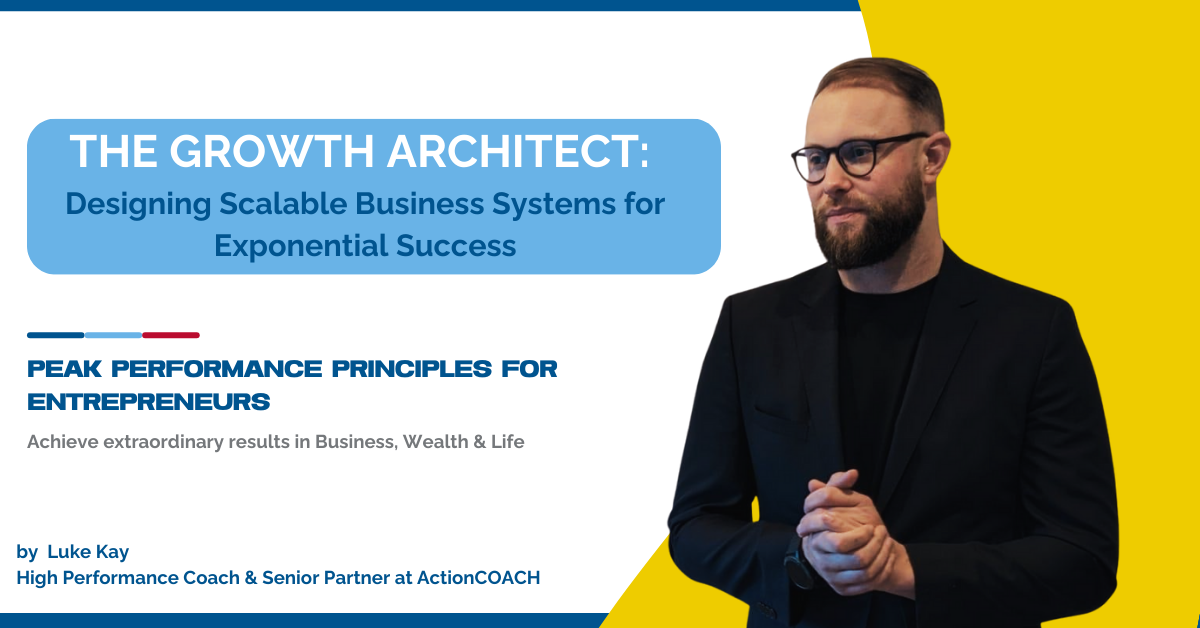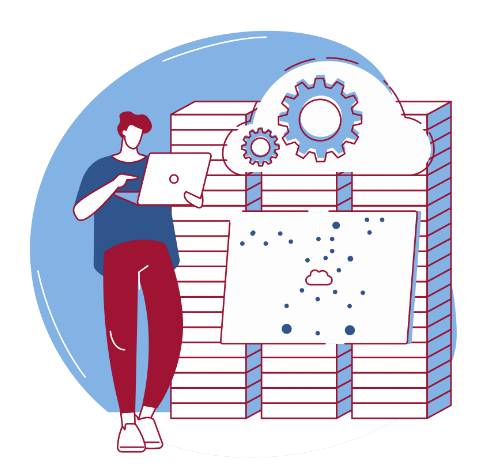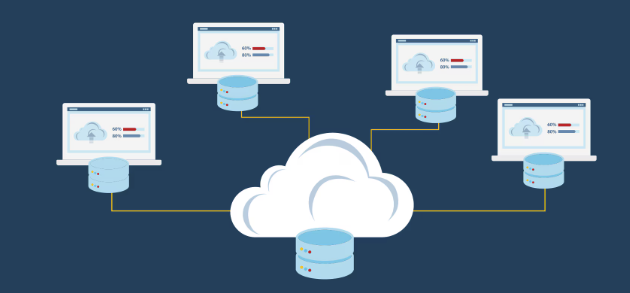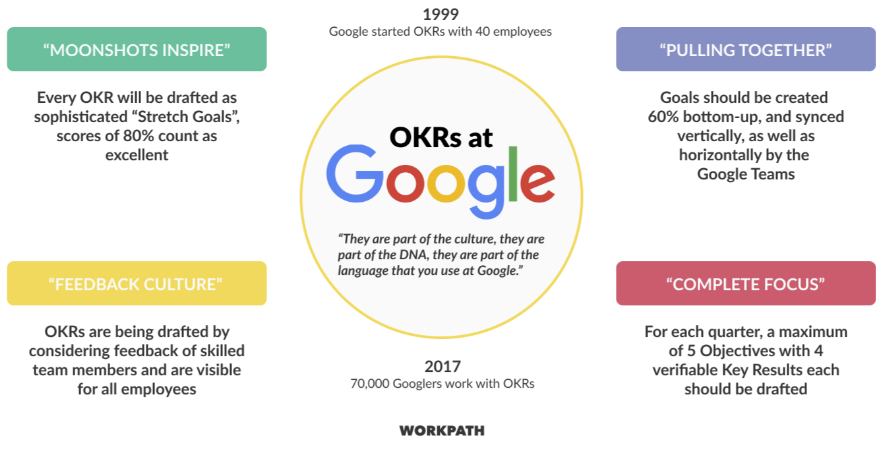
In today’s rapidly evolving business landscape, the ability to scale quickly and efficiently can mean the difference between market leadership and obsolescence.
But scaling isn’t just about growing bigger—it’s about designing systems that can support exponential growth without collapsing under their own weight. Let’s explore how top executives act as growth architects, creating scalable systems that drive sustained success.
Peak Performance Principle #1: Design for Modularity
Scalable business systems are built on modularity. This principle involves breaking down your business processes into discrete, interchangeable components that can be easily replicated, modified, or replaced as needed.
By designing modular systems, you create flexibility that allows for rapid scaling and adaptation to changing market conditions. Each module should be self-contained enough to function independently, yet easily integrated with other modules to form a cohesive whole.
Principle #1 Case Study: Salesforce’s AppExchange
Salesforce, the leading customer relationship management (CRM) platform, exemplifies the power of modularity in scaling. Their AppExchange marketplace allows third-party developers to create and sell apps that integrate seamlessly with the Salesforce platform.
This modular approach has enabled Salesforce to rapidly expand its capabilities without having to develop everything in-house. It’s also created a thriving ecosystem that adds value for customers and drives loyalty. Since its launch in 2006, AppExchange has grown to offer over 3,000 apps and has facilitated more than 7 million installations, contributing significantly to Salesforce’s exponential growth.
Peak Performance Principle #2: Embrace Automation and AI
To achieve true scalability, businesses must leverage automation and artificial intelligence. These technologies allow companies to handle increased workloads without a proportional increase in human resources.
Identify repetitive tasks and processes in your business that can be automated. Look for opportunities to implement AI for decision-making, customer service, and data analysis. The goal is to create systems that can scale up operations with minimal additional overhead.
Principle #2 Case Study: Amazon’s Automated Warehouses
Amazon’s use of automation and AI in its fulfilment centres is a prime example of building scalability into business operations. The company employs a vast array of robots and AI systems to manage inventory, pick and pack orders, and optimise logistics.
This automated system has allowed Amazon to dramatically increase its operational capacity and efficiency. In 2012, Amazon acquired Kiva Systems (now Amazon Robotics) for $775 million. (+/- £602.2 million) By 2019, Amazon had deployed over 200,000 robotic drives, enabling the company to handle the exponential growth in e-commerce demand, particularly during peak seasons.
Peak Performance Principle #3: Implement Data-Driven Scalability
Scalable business systems rely on data. By implementing robust data collection and analysis systems, you can make informed decisions about when and how to scale different aspects of your business.
Create dashboards that provide real-time insights into key performance indicators across your organisation. Use predictive analytics to anticipate scaling needs before they become critical. The goal is to create a data ecosystem that grows with your business and continually informs your scaling decisions.
Principle #3 Case Study: Netflix’s Data-Driven Content Strategy
Netflix has mastered the art of using data to drive scalable growth. The company collects and analyses vast amounts of viewer data to inform content creation, acquisition, and recommendation systems.
This data-driven approach has allowed Netflix to scale its content offering efficiently, producing or acquiring shows that are likely to succeed based on viewer preferences. It’s also enabled the company to create a highly personalised user experience that scales across millions of users. This strategy has been a key factor in Netflix’s growth from a DVD rental service to a global streaming giant with over 230 million subscribers.

Peak Performance Principle #4: Build Cloud-Native Architecture
In the digital age, truly scalable business systems are built on cloud-native architecture. This approach allows for rapid deployment, easy scaling of resources, and greater flexibility in managing IT infrastructure.
Transition from legacy systems to cloud-based solutions where possible. Embrace micro-services architecture to create more resilient and scalable applications. The goal is to create an IT infrastructure that can quickly adapt to changing business needs and scale on demand.

Principle #4 Case Study: Capital One’s Cloud Migration
Capital One, one of the largest banks in the United States, made a bold move to become the first bank to fully exit data centers and go all-in on the public cloud. This transition began in 2015 and was completed in 2020.
The move to a cloud-native architecture has allowed Capital One to innovate faster, scale more efficiently, and improve its security posture. It’s enabled the bank to launch new products more quickly, handle peak loads more effectively (like during tax season), and use advanced analytics and machine learning at scale. This cloud-first strategy has been a key factor in Capital One’s digital transformation and continued growth in a highly competitive financial services market.

Peak Performance Principle #5: Cultivate a Scaling Mindset
Scalable business systems aren’t just about technology—they’re also about people. Cultivating a scaling mindset throughout your organisation is crucial for sustained growth.
This involves training employees to think in terms of scalability, encouraging innovation that supports growth, and creating a culture that’s comfortable with constant change. Leaders should regularly communicate the vision for growth and help teams understand their role in achieving it.

Principle #5 Case Study: Google’s OKR System
Google’s use of Objectives and Key Results (OKRs) is a prime example of cultivating a scaling mindset. This goal-setting system, used by Google since its early days, helps align employee efforts with the company’s broader scaling objectives.
OKRs are set quarterly and are intentionally ambitious—Google aims for about 70% achievement. This approach encourages employees to think big and contributes to a culture of continuous improvement and scalable growth. It’s been a key factor in Google’s ability to maintain a startup-like innovative culture even as it has grown into one of the world’s largest companies.

Implementing Scalable Business Systems
Designing scalable business systems for exponential success is a complex but crucial task. Here are some steps to get started:
- Audit your current systems: Identify bottlenecks and areas that don’t scale well.
- Prioritise modularity: Look for opportunities to make your systems more modular.
- Invest in automation and AI: Start small with pilot projects, then scale successful initiatives.
- Enhance your data capabilities: Implement systems for better data collection and analysis.
- Consider cloud migration: Evaluate which systems could benefit from moving to the cloud.
- Develop your people: Invest in training programs that cultivate a scaling mindset.
Remember, becoming a growth architect is an ongoing process. It requires constant evaluation, adaptation, and a willingness to embrace new technologies and methodologies.
Are you ready to architect your business for exponential growth? The first step is to identify which of your current systems is the biggest constraint on your ability to scale.
What’s one area of your business that, if made more scalable, could unlock significant growth potential?
Would you like to design scalable business systems that drive exponential success? Book a complimentary Strategy Session with me. We’ll analyse your current systems and develop a tailor-made plan to enhance your scalability across all areas of your business.
Don’t let system constraints hold back your growth – let’s architect your path to exponential success together!
Want to find out how we might be able to support your Organisation’s Growth?
Our Business Growth Services
We have core 4 business growth services;
- Business Growth Academy for Entrepreneurs of 5 & 6 Figure Revenue Businesses who want to build a 7 Figure Revenue Business and join a community of like minded business owners you can connect and grow alongside.
- 1-2-1 Business Coaching for Entrepreneurs for 7 and 8 Figure Businesses who want to build a 7 Figure Profit BusinessandGenerational Wealth.
- 1-2-1 Executive Coaching for Business Leaders of 8, 9 and 10 Figure Organisations who want to become Even Better All Round Business Leaders.
- Strategic Planning for 8, 9 and 10 Figure Organisations that want to embed Strategic Thinking Execution Planning to get clarity and alignment for your Senior Leadership Team and ultimately Add Zeros to Your Organisation.
Still Not Sure?
If you want to find out more about how we can help you or are not sure which programme is best for you and your organisation feel free to book a complimentary discovery call with myself here.
It should only take 15/20 so I can find out a little more about You and Your Organisation and advise on the next steps.
Book Complimentary Discovery Call
Events
We hold events on a monthly basis as part of our Business Growth Academy and 1-2-1 Business Coaching. If you want to attend one of our events for FREE and meet the rest of the entrepreneurs in our business growth community then please feel free to check out our events page or book onto our next Business Growth Academy Event or 90 Day Planning by clicking on our events page here.

We’re beyond excited to share that ActionCOACH Liverpool has been named the Best Business Consultants in Liverpool by The Legal Directorate UK for 2024! This amazing honour shows our dedication to helping businesses like yours succeed and grow.
https://liverpool.actioncoach.co.uk/best-business-consultants-in-liverpool/





